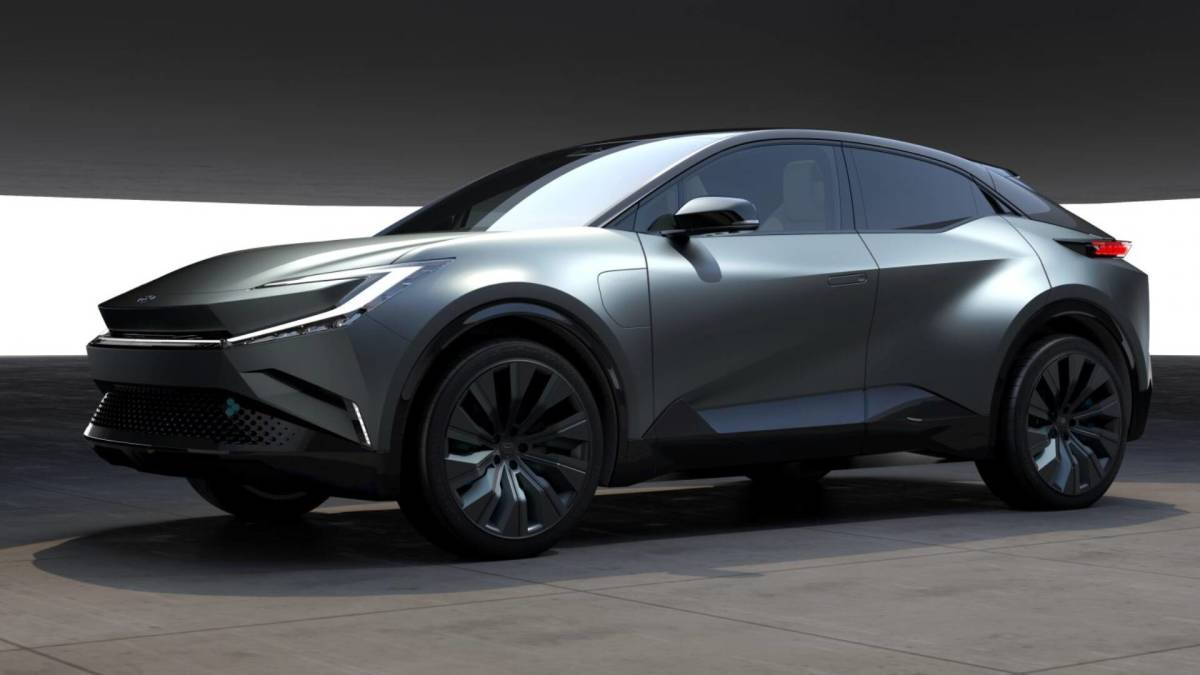
Tesla's massive lead in the electric vehicle market has the rest of the automobile industry scrambling to develop and roll out competitive EVs to catch up to the leader.
Every automaker not named Tesla (TSLA) -) has a huge mountain to climb to even get close to the volume of vehicles that Elon Musk's company sells each year. It's no secret that Tesla is so far ahead of the competition as the top selling EV maker. It led the world with 1.3 million vehicles delivered in 2022 and over 889,000 in the first half of 2023.
DON'T MISS: Tesla rival Nio delivers a refreshed electric vehicle
The Austin, Texas-based EV maker is on target to reach its annual goal of 1.8 million deliveries for 2023. The company's Model Y sports utility vehicle also became the world's best-selling car with about 267,200 vehicles sold in the first three months of the year ahead of Toyota, which sold 256,400 Corolla units, which are not EVs.
Automakers line up electric SUVs to answer Tesla
Aside from leading the world with it's popular SUV, Tesla any day now will begin delivering its new Cybertruck pickup truck, which should quickly surpass industry EV pickup leaders Rivian and Ford. But the Model Y, priced to start at $47,740, is what the EV industry is focusing on to compete. Most recently, Ford on Sept. 7 revealed its much-anticipated and first-ever rally-inspired electric vehicle, the Mustang Mach-E Rally SUV.
Los Angeles-based Fisker (FSR) -) is expanding its SUV lineup, despite cutting its production forecast this year from 42,000 vehicles to between 32,000 and 36,000. It began delivering its Ocean SUV, which retails as low as $37,499, on June 23. Fisker will next roll out its entry-level Pear small crossover priced at about $29,900, which was delayed for delivery in 2025.
Ford's 2023 Mustang Mach-E Select starts at $42,995, and GM's new 2024 Chevy Blazer began rolling off the assembly line June 26 for as low as $44,995 for the 1LT.
In May, Toyota (TM) -) created a new unit call BEV Factory dedicated to producing entry-level battery EVs with a range of 620 miles. The Japanese goal is to roll out a full lineup of next-generation BEVs globally in 2026. It said at the time it plans to produce 3.5 million electric vehicles per year by 2030, including 1.7 million units on the new BEV platform.
The company last week unveiled a factory in central Japan where it will integrate old manufacturing methods with new technology to ramp up EV production and try to keep costs down.
Toyota's bZ Compact SUV revealed
In November 2022, Toyota revealed its bZ Compact SUV concept at the Los Angeles Auto Show.
"We’ve only just begun to scratch the surface of the Beyond Zero moniker,” said Toyota group vice president and general manager David Christ said in a Nov. 16 statement. “With an aerodynamic design coupled with intuitive tech features never before seen in a Toyota model, the bZ Concept showcases another possible vision of the very near future with our battery electric vehicles.”
The bZ Compact SUV is designed as a full battery-electric vehicle, using a clean-vital design approach, "utilizing eco-conscious interior materials, that also brings dynamic performance, leading technology and a stylish appearance."
"The aerodynamic form of the concept enhances its futuristic look by pushing the wheels to the corners to achieve an aggressive stance – making it appear as if it’s moving even when standing still," the description said. The company has not revealed a range or price for the vehicle yet, or a release date. The company's current bZ4X SUV has a 252 mile range with a $42,000 starting price.
To follow up the earlier reveal, Toyota released a new video on X, formerly Twitter, on Sept. 19 showcasing the new bZ Compact SUV.
私たちが生きる今は、次世代が生きる未来でもある。
— トヨタ自動車株式会社 (@TOYOTA_PR) September 19, 2023
プリウスから付けられたこのバッジには、地球に暮らす人々の幸せを大切にし、次世代にそれを引き継いでいきたいというメッセージが込められています。
ゼロを超えた未来へ。BEYOND ZERO。#TOYOTA #BEYONDZERO pic.twitter.com/A15shOgXxS







